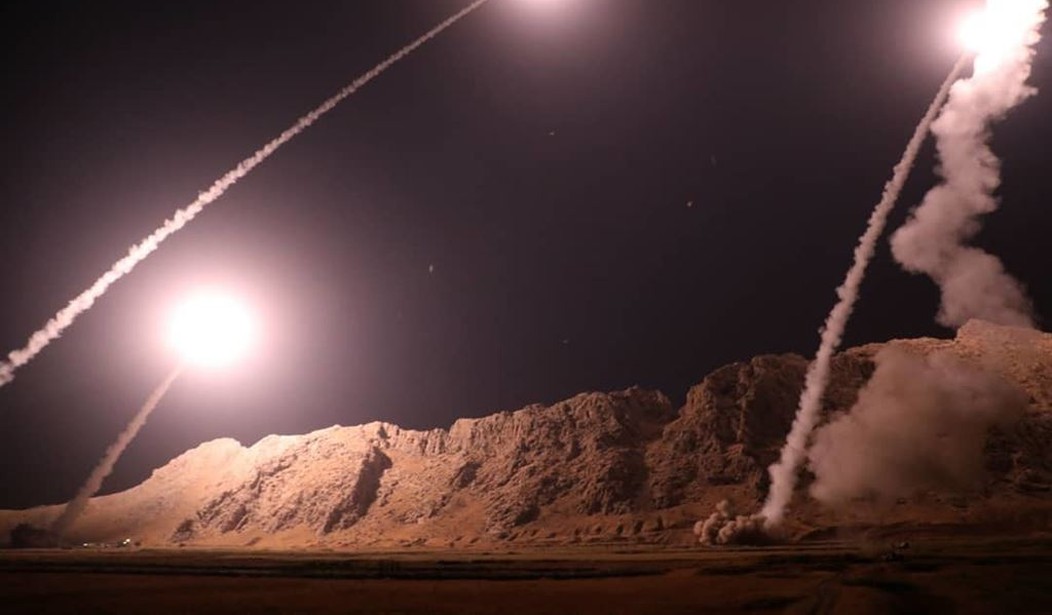Andrew McCarthy takes up a subject I have discussed before, proportionality. He writes in the National Review: "For about the millionth time, the law-of-war concept of proportionality does not hold that a response to an attack has to be on the same scale as the attack itself."
That, of course, is not how proportionality works.
The driving question in a proportionality calculation is: What is the military objective? If that objective is legitimate (which, under the United States Constitution, we get to decide for ourselves), then the use of force must be reasonably proportionate to what is required to achieve the objective. If the objective is to end or drastically diminish the aggression of Iran and its proxy forces, then a proportionate use of force would be whatever is necessary to break the enemy’s will to continue (and even escalate) that aggression.
Of course there is no military objective, strictly speaking, in Joe Biden's contemplated retaliation for Iran's fatal attack on a U.S. base. There may be military targets on the strike list, but none of them are intended to cause regime change or "break the enemy’s will to continue." The strikes are about sending a negotiating signal; it is a form of diplomacy, not warfare. Joe is sending messages in the form of high explosive. They are militarily pointless in terms of ending the conflict, and that arguably makes them immoral; it is their intended ineffectuality that makes them disproportionate.
It has been argued heavy strikes are meant to restore deterrence. But the whole point of deterrence is not to use the Dreadful Capability. If you have to use it, something has already gone wrong. Deterrence is a quantity inside the mind of the enemy. Joe's problem is the enemy just didn't respect him enough to forbear in the first place. They felt they could challenge him -- and did. The enemy was willing to climb the escalation ladder, confident perhaps falsely that Joe would in any contest climb down first. The enemy may have miscalculated, but that is still a failure of deterrrence.
What if Joe climbs the rung and the enemy ups the ante? What then? When does it stop being "proportional"? For so long as reprisals do not envision enemy surrender but only his weakening, though they be military in form they are diplomatic in nature. They accept or concede enemy state survival for purposes of negotiation. Modern conflicts nearly all take this form.
This form is now so normative that Israel stands accused of the offense of trying to defeat Hamas, that being disproportionate. It can "degrade" them but to actually destroy the enemy is verboten. Military action is thus restrained but at the price of being open ended. Biden is implicitly accepting this ROE but on a vaster scale. He can expect his conflict against Iran to similarly last as long as Israel's against the Palestinians.
Iran's published Red Line is "no strikes inside Iran proper," so Joe can hit as many expendable henchmen as he likes if he leaves the bigs alone. However this "crisis" goes it will not end soon because they are free to resume whenever they like. It may not end ever, having already lasted since Jimmy Carter's distant day. We can be onboard with this limited war model, this slow endless bleeding, for so long as we recognize it for what it is. But we really should have no expectation that the slaughter of the little people by the bigs or the retail attacks on US soldiers will stop. The slow bleed is how it's supposed to work.
Complete victory is still possible in the context of limited or Cold War. Even with direct military triumph off the table, the adversaries can still be in system-wide competition across the domains of demography, economics, innovation and culture. Eventually one side truly wins. The offensive of the winning side takes the form not of advancing armies but internal innovation and improvement that eventually buries the foe. This is how America won Cold War 1 and how it may win this one. This is the battle Joe may be losing more badly than anything in MENA.
Open borders, printing money and appointing incompetents for political advantage will hurt more in the long run than whether Joe hits this proxy camp or that proxy camp. Joe is clever in a cunning sort of way, good with little traps and side deals. That intelligence served him well in his career. But in the kind of game he now finds himself, those skills are less useful. He is frequently reactive because he's not good outside the box. On the plus side, Biden may be less damaging than a leader like Putin or Obama, who have a great but undeserved opinion of themselves. Joe buys his visions at the store; he knows better than to dream them up himself.
To really be at the top of the game a leader needs 3 sets of competencies: 1) strategic 2) technical and 3) interpersonal. Strategy means knowing what's important in a changing world. Technical means mastering your chosen domain. Interpersonal means choosing the right people. Biden probably has no aptitude for strategy but has the wit to realize it. His strong suit is he knows the bureaucracy inside out. His choice in people seems largely abysmal, but that is probably because he treats it as patronage. It is fortunate that there does not now exist a great power Alexander; someone good at 1) strategic 2) technical and 3) interpersonal. What we have is a bunch of comparative jokers canceling each other out.
Maybe we're still lucky there is no modern Alexander. Hope for the best, but not too hard.










